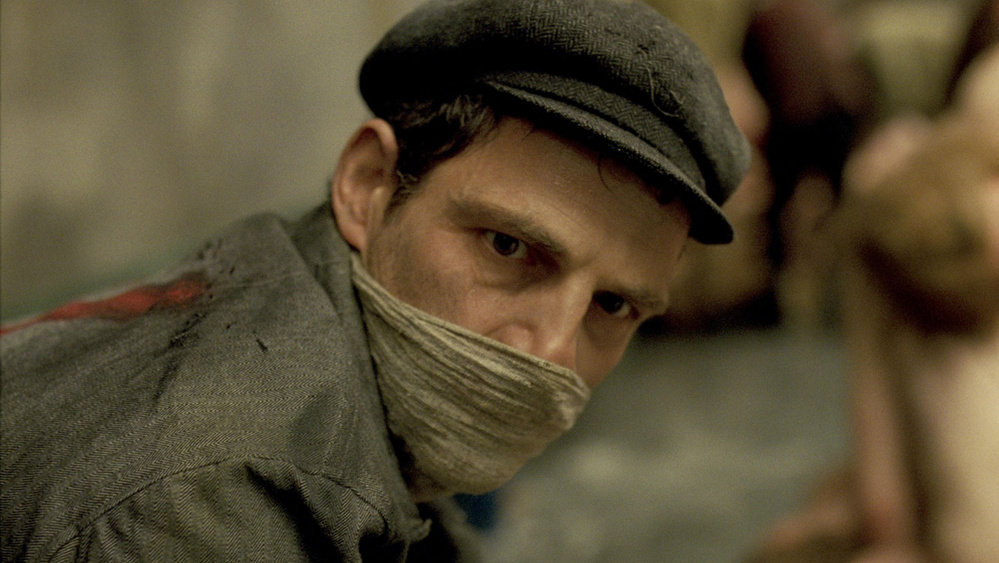Each week as a reviewer, I screen my way through a garden of films, some are joyful, others joyless, some are punishing in their mediocrity, some stunning in their beauty. And then there are those that fill the darkness of the empty theater around you with an even deeper, haunting, almost subterranean blackness.
This then is “Son of Saul,” the work of a new young director on the block. It’s clear that Hungarian Laszlo Nemes is locked into a long and fruitful career.
“Son” is an open wound of a film, almost impossible to sit through. Were it not my job to review it, I think I would have declined, just on the viewing of the previews.
Saul, played by Geza Rohrig, actor and poet, is a “Sonderkommando,” one of a herd of conscripted Jews who are picked out of the flocks of Jews being poured into the death camps of Europe, to keep clean the fingers of the killers.
Geza Rohrig gives us a Saul almost dead on his feet with eyes that have become frozen, lips tightened, jaw locked in determination.
His portrayal is chilling.
Rohrig is joined here by a chorus of fellow prisoners who pop in and out, made robotic by the routine, as they work their horror. With rags hiding their faces and blocking the smell of burning flesh from their nostrils, they are truly the walking dead. There should be an ensemble award for them.
Saul, picking his way through the bodies of the gassed as he mops up blood and vomit in the gas chambers, discovers a boy still alive. He seems to think it is son. We never really know. Perhaps he has not seen his son in years, and there is only a resemblance. Maybe Saul was not even a practicing Jew, but it is enough to awaken in him some vestige of primal faith.
Saul tries to keep the boy alive while he seeks a rabbi for a proper burial, but the German doctors, really butchers in spotless white coats, have orders from Dr. Mengele to perform an autopsy.
For 107 unrelenting, torturous minutes, director and writer Nemes and cinematographer Matyas Erdely drag us along behind them as they move through an opera of death, past the smokey fog of burning bodies, illuminated by constant red flames, and heightened with a nightmarish chorus of guttural German commands and screams of the dying as they are gassed and shot. Women and men, children, the crippled and the aged are all shoved into burning pits of fire.
Never in any depiction of the horror of the “final solution” has such a libretto of the lost been written.
Even the brilliant “Shoa” and “Shindler’s List” pale in comparison, and to his credit, director Nemes has managed to shape the great Hieronymus Bosch’s “Garden of Earthly Delights” into a cinematic tableau that burns the eyes and turns each of us into a version of Edvard Munch’s “The Scream.”
“Son of Saul” is not just a piece of movie art, but once again a scream in our ears, a slap in our faces, lest we slumber through another political comic opera, both here and abroad, that will result in a final worldwide catastrophe.
J.P. Devine is a former stage and screen actor and the author or “Will Write for Food.”
Send questions/comments to the editors.



Success. Please wait for the page to reload. If the page does not reload within 5 seconds, please refresh the page.
Enter your email and password to access comments.
Hi, to comment on stories you must . This profile is in addition to your subscription and website login.
Already have a commenting profile? .
Invalid username/password.
Please check your email to confirm and complete your registration.
Only subscribers are eligible to post comments. Please subscribe or login first for digital access. Here’s why.
Use the form below to reset your password. When you've submitted your account email, we will send an email with a reset code.